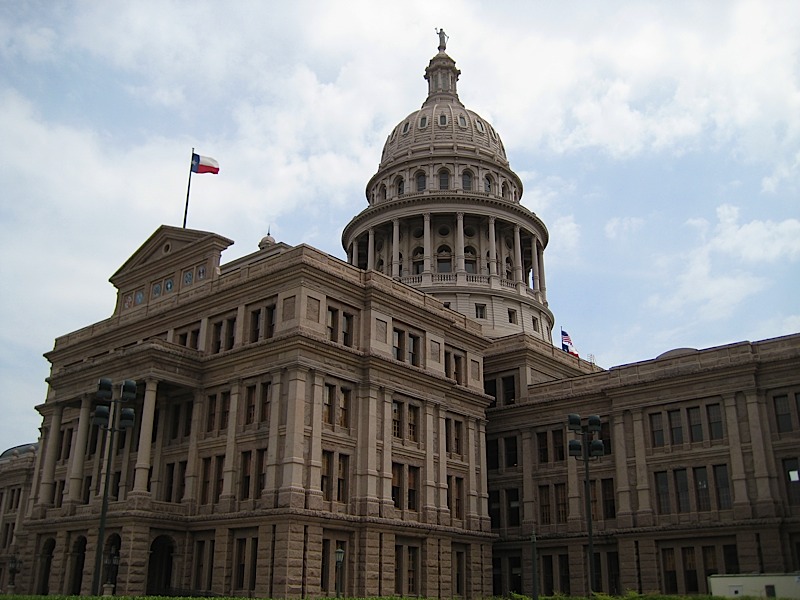Target is at the center of a controversy about pride merchandise. After years of offering a wide array of LGBTQ+ affirming products, including displays celebrating the queer community in the month of June, the major retailer has removed and relocated some of its pride merchandise in response to threats and harassment towards its employees. In a statement released near the end of May, Target said that it had “experienced threats impacting our team members’ sense of safety and well-being while at work” and that for that reason it was pulling some of its pride merchandise. Some workers also reported that their store’s pride display was moved to a less prominent location.
The conservative ire for Target’s inclusiveness is well-documented, with customers removing pride display signs, accusing employees of being child groomers and promoting a woke agenda, and even threatening gun violence. Conservative podcast host Matt Walsh sparked outrage by falsely stating that particular trans-affirming items were being sold for children, which helped fuel the campaign against Target. Since Target’s statement, the situation has escalated with a group of apparently fake bomb threats on a number of stores, as well as backlash from numerous directions.
In a year when trans rights are on the chopping block in numerous states, with nearly 500 anti-LGBTQ bills under consideration in the United States, one has to wonder: Does a display in a store really matter? Corporations have long been dismissed for engaging in rainbow capitalism: showing outward support for the LGBTQ+ community only when it profits them to do so. Support for a marginalized community doesn’t mean much if it lasts only as long as prevailing sentiments in the wider culture align with it. Isn’t backing down just what people have long expected Target to do?
I will argue Target’s actions do matter morally, both in their material effects and in their symbolic ones. First, the material effects. Whatever the motivation may be behind the corporate support of the LGBTQ+ community, the items sold in a store exist in the world for people to see and buy. Target has sold products for gender transition and expression, such as binders and swimwear labeled as “tuck-friendly,” in addition to the more symbolic rainbow-colored or queer-message products. The ability to go to a nearby store — the same place you may go for paper towels, diapers, and shower curtains — and pick up these items is convenient for people who are transitioning. Not everyone has easy access to specialty retailers, so Target provides a real service in bringing these products to their stores.
The pride displays also have a material effect for the LGBTQ+ creators of the merchandise with whom Target partnered. Target is a major retailer, earning a net profit of close to seven billion dollars in 2022. When a designer has their products sold at Target, their products reach a much wider customer base than can be reached with an independent store. Unsurprisingly, the creators of the pride merchandise have expressed frustration and disappointment at having their merchandise pulled. Designer Ash + Chess expressed sadness over having their products removed from stores. The brand JZD similarly made a statement calling anti-LGBTQ+ hate “devastating,” expressing that the experience of having their products pulled after more than a year of working on custom pieces was emotionally draining. While these designers may be getting support within their community as people feel sympathy and outrage for their treatment, the brands are still missing out on an opportunity that they were offered and worked hard to achieve. And seeds of distrust have been planted for LGBTQ+ brands’ prospects of working well with Target in future years.
The display matters to Target’s employees as well. Some queer Target workers have made it known that they do not appreciate their safety being used as an excuse to cave to the demands of people who wish them ill. Someone who worked at Target in part because of the company’s queer-friendly commitments might understandably feel betrayed.
As material forces in the world, pride merchandise in major retailers is worth more than whatever motivation may or may not be behind it. Its continued presence in the face of backlash is not nothing, nor is Target’s pulling some merchandise insignificant to those affected by it.
Target’s pride merchandise also matters symbolically. Symbols help connect us to each other. They allow us to recognize ourselves in each other, express our values or identities, and find common ground. In a society experiencing a noticeable backlash against the LGBTQ+ community, a rainbow pin can communicate a small bit of safety in a public place such as a restroom. I’m like you. I’ve got your back. A pride display similarly communicates acknowledgement and support of the queer community. At least it does so until it is moved out of sight.
But having pride merch and items for gender transition such as binders and tuck-friendly swimwear in major retailers like Target communicates something further. It communicates that being queer is no big deal. It counteracts the pervasive narrative of deviance that has long been wielded against queer people. As a symbol, it thus has meaning independent of the changing commitments of the corporation behind it.
Many have pointed out that the popularity of pride merchandise may be more of an indicator of social acceptance than a cause of it. Be that as it may, companies have a duty not to cave to the pressure of those who are opposed. No symbolic show of support can nullify oppressive laws, restore rights, or keep queer people safe, but symbols that also offer real material benefits can be a small source of support for people living in a society that is increasingly hostile to members of the LGBTQ+ community. Both in their material effects and their symbolic nature, pride displays matter.



